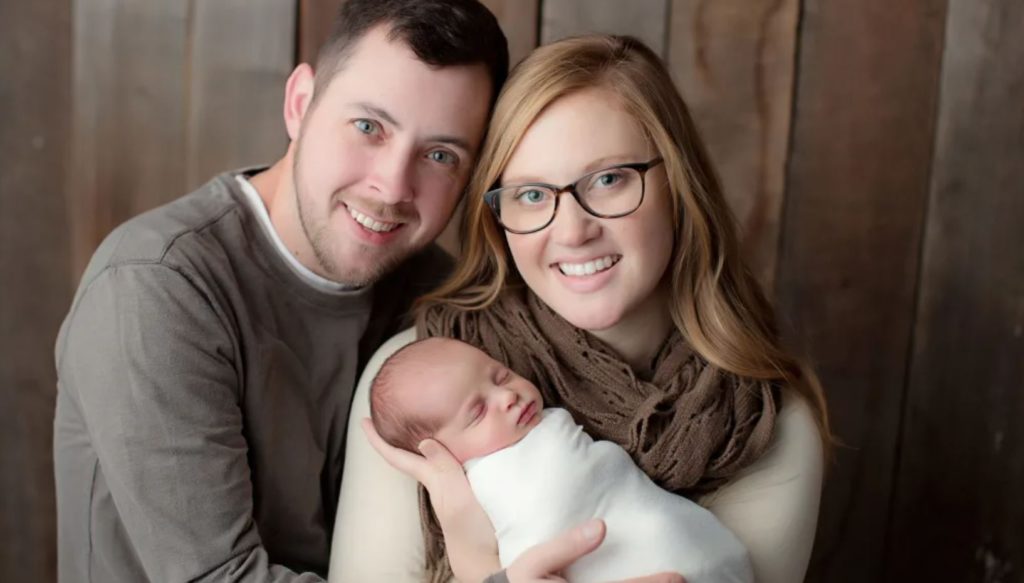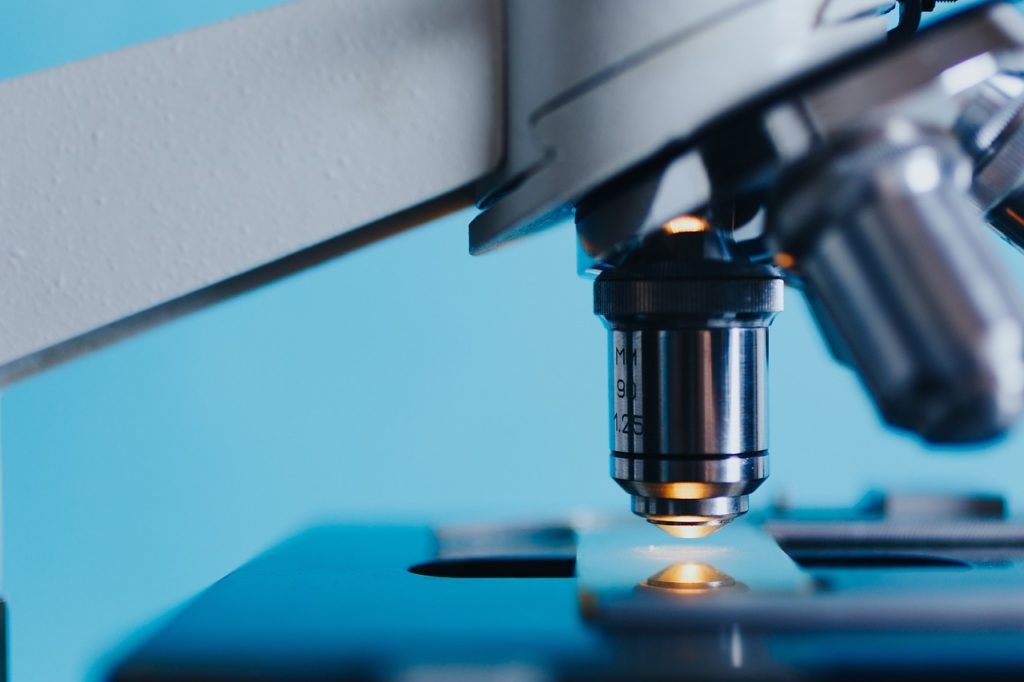Modern medicine has made some astounding advances including helping families have babies where they may biologically struggle.
One example is a woman born in 1991 who gave birth to an embryo frozen in 1992.
Old Frozen Embryo Develops New Baby

Tina Gibson lives in Tennessee with her husband Benjamin. The pair were married for over 5 years but couldn’t conceive. “My husband has cystic fibrosis, so infertility is common,” Tina explained. “We had decided that we were more than likely going to adopt, and we were fine with that.” The couple became foster parents, until a frozen embryo changed their lives, forever.
Emma Wren Gibson was born on November 25, 2017, weighing 6 pounds and 8 ounces. Although she was born healthy, her case was extraordinary as she was born from a frozen embryo donated in 1992, just one year after Tina was born.
Hesitant to Consider a Frozen Embryo

The couple was hesitant to consider a frozen embryo as an option but were introduced to the idea by Tina’s father. “I was like, ‘Well, that’s nice, Dad, but we’re not interested. We’re knee-deep in foster care right now. I kind of blew it off. I had no interest in it.” Tina recalled, sharing the thought had somehow resonated with her. “It was playing in my mind over and over and over,” she said. Luckily, when she shared her thoughts with Benjamin, he told her he’d been thinking about it too.
As the pair drove home, Tine thoroughly researched the option of giving birth to a frozen embryo, noting that the National Embryo Donation Center was in Knoxville and could perform the scary yet thrilling procedure. Several weeks passed before the couple officially decided to “submit an application for embryo adoption,” Tina said. “On a whim, we filled out an application and submitted it that night.”
Thoughtfully Submitting an Application

After months of testing Tina’s physical abilities to respond to treatment, the application process was similar to parents wanting to foster or adopt. First, a state worker visits the home to ensure a good environment for a new baby. “Just the standard home study that mimics any home study that anybody would go through in a traditional adoption process.” Explained Mark Mellinger, the marketing and development director at the NEDC. “Very rarely does a review find a red flag,” he added. After they were approved, the couple was given a list of possible frozen embryos, with all the information about their family medical history and academic or professional achievements.
“We literally had two weeks to go through 300 profiles,” Benjamin said.
Frozen Embryo Statistics

Finally, the couple picked their frozen embryo, the future Emma Wren Gibson. While it’s presumed that Emma’s embryo was from a donation in 1992, the medical experts who performed the procedure note there’s no way to know for sure. Three frozen embryos were used for the procedure and no one can be certain which embryo took.
“Identifying the oldest known embryo is simply an impossibility,” said Dr. Zaher Merhi, director of IVF research and development at New Hope Fertility Center. Although the facility didn’t take part in the Gibson case, it’s familiar with similar practices and procedures. Merhi notes that American companies are not required to report to the government the age of an embryo used. As such, “nobody has these records.”
Thrilled over the New Baby

Benjamin couldn’t have been happier although he doesn’t share his daughter’s genes. “As soon as she came out, I fell in love with her,” he said. Meanwhile, Tina was equally thrilled.
“We’re just so thankful and blessed. She’s a precious Christmas gift from the Lord. We’re just so grateful.” She said. “We wanted to adopt, and I don’t know that that isn’t going to be in our future. We may still adopt. This just ended up being the route that we took.”
The NEDC
The National Embryo Donation Center is a faith-based organization founded in 2003, according to Mellinger. “We say that our reason for existence is to protect the sanctity and dignity of the human embryo.” He explained. “We are big advocates of embryo donation and embryo adoption.”
“We will contact the fertility clinic where the embryos are stored, and they are happy to work with us.” He added. “We will adopt out an embryo whenever. Sometimes, embryos have been in storage for a few weeks, maybe a few months. Sometimes, it’s literally been decades.” The fees are generally around $12,500 and are paid by the adopting couple, for a “first try.”
Alternative Roads to Parenthood
Business decision making and the way to success. Choosing a strategic path to move forward. Alternative options and business solutions. Paper plane with arrows pointing different directions.

Although many people prefer to have biological children, that isn’t always an option. Luckily, there are other options and supports available to help facilitate a couple’s desire to have a family. While using a frozen embryo is a possibility other options are also available.
For example, becoming a foster parent is advantageous for adults and children. Thousands of kids in the U.S. are in foster care, in need of loving and supportive environments. This is a great option as the government also helps relieve some of the financial burden that comes with the responsibility of caring for another human being.
While also costly, surrogacy is another option for parents struggling with fertility. A woman is selected to carry and deliver a baby for a couple hoping to have a child of their own or closely related genetic makeup.
Lastly, consider adoption. Thousands of children in the U.S. and likely millions worldwide need access to a better quality of life to thrive. If you’re hoping to become a parent but are struggling with fertility adoption may be a great choice as it’s an opportunity to make the world and your life a little brighter.
Source: truth-here







